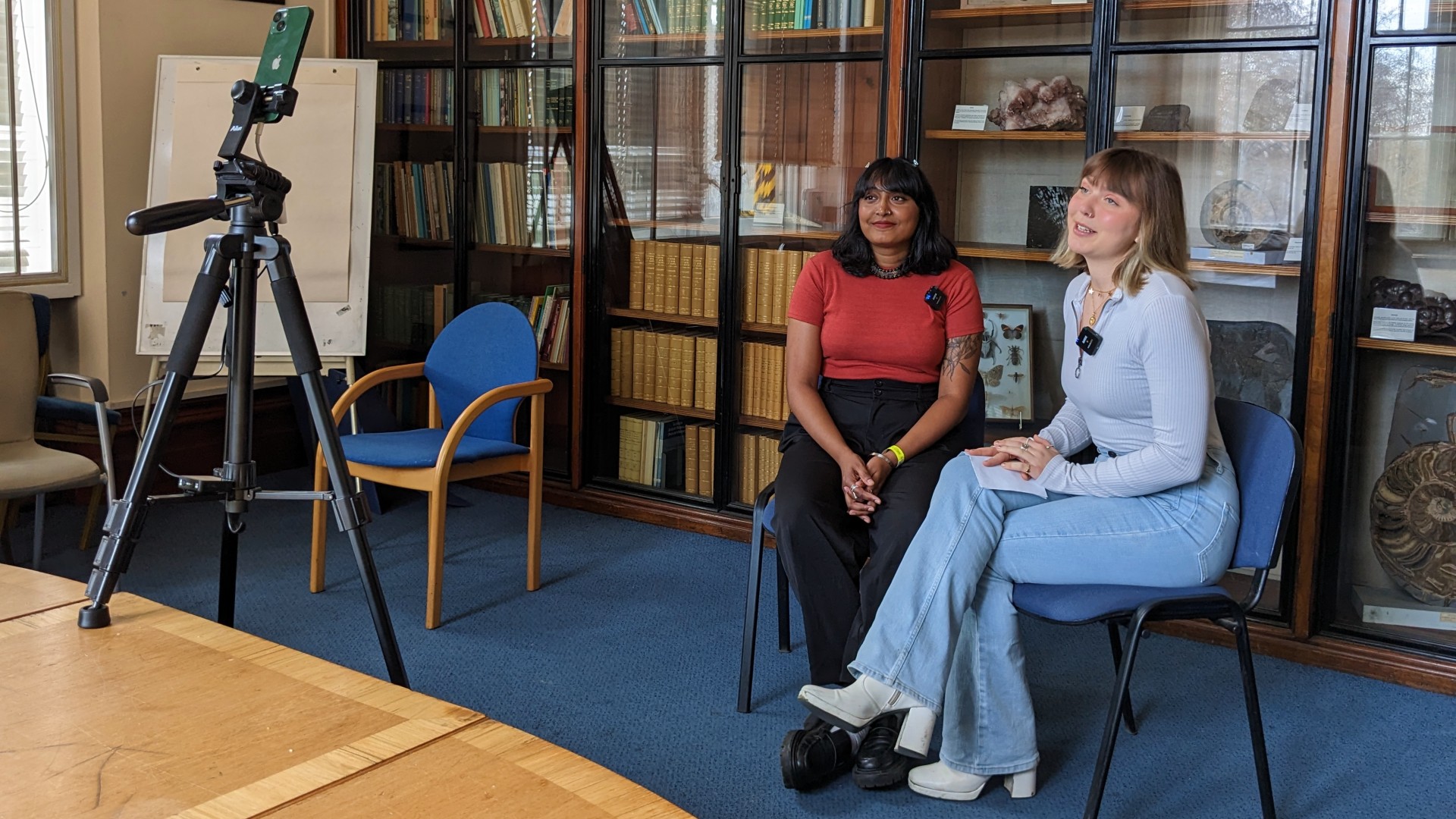We went to the Natural History Museum’s Generation Hope: Act for the Planet event to speak with the climate justice activist and founder of FFF India about how young people can use their influence and actions to drive positive change for the Earth’s future.
Disha Ravi is a climate justice activist, storyteller, and one of the founders of Fridays For Future India. Part of the organisation’s MAPA (Most Affected Peoples and Areas) wing, her work centres on amplifying the voices of those bearing the brunt of the crisis’ impacts. This, and making the topic of our environmental emergency a household discussion because, as she asserts, only when we know the truth can we act on it and consequently ensure that communities in need are receiving the aid they deserve. In her words: ‘we are not just fighting for our future; we are fighting for our present. We, the people from the most affected are going to change the conversation in climate negotiations and lead a just recovery plan that benefits people and not the pockets of our government.’
View this post on Instagram
Thred: When did you decide to dedicate your time to safeguarding the future of our planet? What made you want to take it to a global height, from project to mission to life’s work?
Disha: When I first started out I wasn’t really aware that the climate crisis was impacting us even though it already was. This is because there was little to no education in public schools. The little we did have was restricted to private schools which the majority of India’s population cannot access. I realised much later in my life – around 18-years-old – that we were indeed being impacted by the climate crisis. That’s when I started trying to understand why people have to live this way because no one else was appearing to question it. My grandparents are farmers and they lived through the water crisis. In Bangalore where I live today, there is still a constant shortage of water. This felt weird to me because I’ve moved around and this isn’t the case in other cities. So I began asking why this was happening which led me to realise that water shortages are linked to very bad underground water management which is, in extension, linked to the climate crisis. No one was talking about it. That’s when I initially started to understand more about the crisis, connect with other local groups, and realise that there weren’t enough young voices discussing the climate. And even though India has a very rich history of environmental activism, the country isn’t focusing on climate necessarily. It’s still taking a back seat. That’s when me and a bunch of others got together and founded FFF India. I posted on Instagram, said ‘hey, I want to get involved but don’t know the first thing about doing this, does anyone else want to join?’ A mutual friend connected me to someone else in my city and we began to mobilise. From there we could connect with all of the movements on the ground.
We made a lot of mistakes but we’ve learned so much along the way and it’s been very fulfilling to have a community that supports you and understands why we’re doing this. I’m very grateful for that.
Thred: Yesterday was Water Day and the UN released a report saying that we’re heading into a global water crisis. What specific action do you deem necessary to tackle this issue?
Disha: No matter how much we use individually, it’s not our fault. Whether we limit ourselves or not, our consumption isn’t the problem. There needs to be a systematic change to conserve water because, in my own city for example, we don’t even have measures in place to collect rainwater and reuse that. We don’t have sustainable methods of storing and reusing water. We think that dams are the solution and continue to build them, but time and time again we’re shown they aren’t enough. In my country, we are focused on development which I understand, but the issue is that we’re not focusing on long-term development while taking into account sustainability and regeneration. We’re focusing on short-term solutions which are proving to be very harmful for people in just a couple of years. This is an extension of how we treat water and sanitation so, while it may help in the short-term, it comes with a lot of immediate environmental degradation because eco-sensitive areas have to be cleared to build these infrastructures. Even though they might work for a while, it’s proven ineffective over a five to ten year timespan. It actually consumes more resources and requires a lot of land to keep it running.
I strongly believe we need a systemic change where we take into account how things are going to look in the next decade or so and how we are going to be able to create a place where we can co-exist with nature where we actually give regeneration a fighting chance.
Thred: What are the biggest issues in your country right now? How can we fix them?
Disha: One issue that’s very personal to me is the fact that the current government doesn’t take criticism very well. The lack of political will to listen to the people and take action based on what they’re demanding is becoming very concerning because they’re using very aggressive means of essentially stopping us from giving feedback, or expressing an interest in finding solutions, or taking a seat at the decision making table. This is detrimental because it means we can’t even take action on how we shape our own homes. Not to mention that they’re continually amending environmental laws which means they’re reducing protection and we even can’t speak against it. They’re not just doing this with the environment either, but with other laws, so our right to express interest in policy at large has reduced drastically. Carrying out activism and demanding change has become heavily problematic for us. It’s scary because there are far too many problems that need to be addressed and silencing us – preventing us from getting involved – means things are only going to get worse.




















